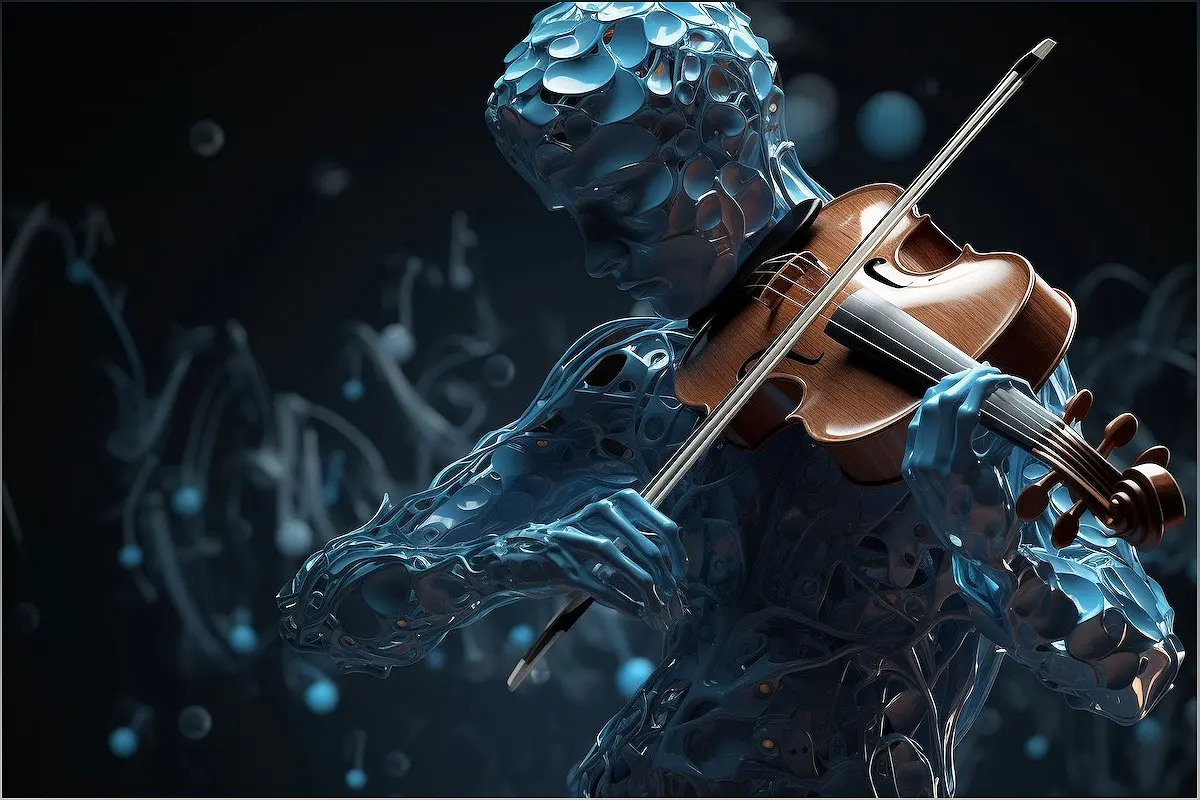In the 1950s, multitrack recording revolutionized the music industry. In the 1960s, the synthesizer made its mark. MIDI and hard drive recording followed, and in the late 1990s, auto-tuning became popular. Now, in the early 2020s, Generative AI is taking center stage. Generative AI, a type of Artificial Intelligence that can generate new content based on large datasets, is transforming the music industry. Let's delve into its applications, challenges, and the questions it raises.
Applications of Generative AI in Music
Explore the various ways Generative AI is transforming the music industry.
Generative AI has opened up a world of possibilities in the music industry. One of its key applications is in composition. Using large datasets, Generative AI can generate new music based on text prompts or images, resulting in unique and innovative compositions.
Another application of Generative AI is in the music production process. It can fix technical glitches in recordings, transform the sound of instruments, and even separate audio recordings into their components. This technology has the potential to revolutionize the way music is produced.
Furthermore, Generative AI can bring unfinished or unreleased works by artists to life. By analyzing existing recordings and manuscripts, AI software can enhance and complete these works, preserving the artistic vision of the original artist.
Challenges and Ethical Considerations
Examine the ethical and artistic challenges posed by Generative AI in the music industry.
While Generative AI offers exciting possibilities, it also raises important questions. Some argue that AI-driven music can never replicate the depth of human emotion and experience. Concerns about the homogenization of music and the "deepfake" phenomenon also emerge.
Defining what constitutes an original composition becomes challenging when AI is involved. Additionally, addressing biases in training data is crucial to ensure fair representation and avoid perpetuating existing inequalities.
Ownership and authorship of AI-generated music are complex issues. Determining who owns the rights to music created by an algorithm and artists' rights regarding AI training on their work require a re-evaluation of copyright laws and intellectual property rights.
The Future of Generative AI in Music
Discover the potential impact of Generative AI on the future of the music industry.
The future of Generative AI in music is promising. As technology continues to advance, we can expect AI-generated music to become more sophisticated and indistinguishable from human-created music.
With the decentralization and democratization of the music industry, emerging artists can leverage Generative AI to explore new creative avenues and reach wider audiences. The possibilities for collaboration between human musicians and AI are also exciting, opening up new horizons for musical expression.
However, it is important to strike a balance between the use of AI and preserving the authenticity and uniqueness of human creativity. As Generative AI continues to evolve, it will be crucial to navigate the ethical and artistic considerations to ensure a vibrant and diverse music landscape.

